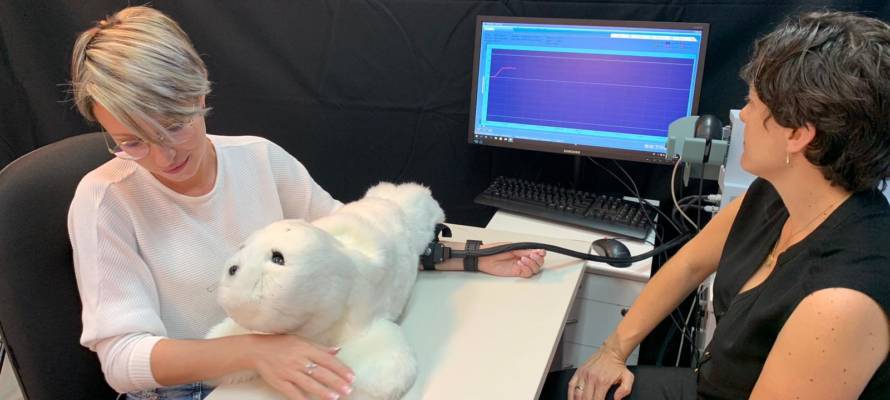Researchers at Ben-Gurion University discover that patients who touch a furry ‘social robot’ have reduced pain and are happier.
By Yakir Benzion, United With Israel
Researchers at Israel’s Ben-Gurion University of the Negev found that patients who played with a seal-like furry robot called PARO had reduced levels of pain and increased happiness.
It is known that several studies have shown that human-to-human contact bolsters mood and reduces pain, and a better mood is obvious when you play with a puppy or kitten. But scientists were confronted by the scenario, especially in the current coronavirus pandemic, that sometimes regular human-to-human contact is not an option.
The question arose if a furry ‘social robot’ could induce similar effects. Dr. Shelly Levy-Tzedek of Ben-Gurion’s Department of Physical Therapy and her team set out to investigate, and their findings just published in Scientific Reports, an online multidisciplinary open access journal from the publishers of the widely respected journal Nature.
The researchers took a Japanese-produced social robot named PARO that looks like a furry white seal. It makes seal-like noises and moves its head and flippers in response to being touched and spoken to.
Levy-Tzedek and her team discovered that even a one-time interaction with PARO, which lasted less than an hour, improved mood and reduced mild and severe pain.
“These findings offer new strategies for pain management and for improving well-being, which are particularly needed at this time, when social distancing is a crucial factor in public health,” said Levy-Tzedek
When participants touched PARO, they experienced greater pain reduction than when it was simply present in the room with them.
Surprisingly, her team also discovered lower levels of the chemical oxytocin in those who interacted with PARO than in the control group participants, who did not meet PARO at all.
High oxytocin levels have been found in mothers playing with their children and between romantic partners, and has sometimes been called the “love hormone,” so a lower level of oxytocin is surprising.
However, recent studies have shown that outside of close relationships, oxytocin production is an indicator of stress and therefore a reduction in oxytocin in the body could indicate relaxation.
